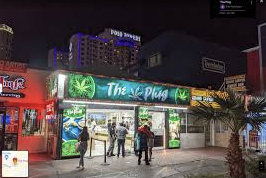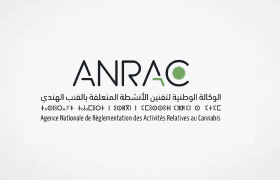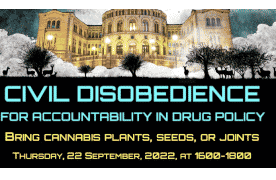Deafening silence from the Norwegian authorities on their last attempt to engender conversation on the topic, so now it is time for round two.
Here is the press release

The Alliance for Rights-oriented Drug Policies (AROD) and the Patient Association for Safe Cannabis Use (PASCAN) invite to civil disobedience at Eidsvolls plass by the Norwegian Storting on Thursday 22 September at 16-18 o’clock to boost the nation’s legal awareness, as well as secure the rule of law for the persecuted groupings of drug policy. The action will shed light on the problem of cannabis cultivation and arbitrary imprisonment, as the police’s judgment and practice have proved unpredictable and disproportionate.
It is not uncommon for citizens who keep cannabis plants, even seeds, to be prosecuted for several kilos of finished product. The police can include leaves and twigs, which is non-smoking material, and on this basis, people are sentenced to months and years in prison. Is this right?
Last year, AROD had a civil disobedience campaign to settle a question of rights, and the police themselves assessed the case differently. Because there were no buds (smokable material) on the cannabis plant we set up outside the main police station in Oslo on September 11, 2021, the prosecution did not want to include the plant in the indictment, and this is a breach of a long tradition that continues in the country’s courtrooms. AROD and PASCAN will therefore clarify the issue, so that arbitrary imprisonment does not occur, and again use civil disobedience to assist legal developments.
AROD and PASCAN do this by bringing a cannabis plant to the Storting. The celebration takes place in Eidsvoll’s square to remind politicians of the rights of a long-overlooked group, and we invites the Norwegian people to bring plants, seeds, or joints to show their solidarity with those who must suffer for the hunt for scapegoats.
Lack of responsibility in drug policy
Since the 1980s, professionals such as Nils Christie and Ragnar Hauge have linked the hunt for scapegoats to drug policy. AROD and PASCAN believe that there is not only a connection between the scapegoat mechanism, human rights violations, and the detection of public panic by the Norwegian royal commission on drug reform, but that the persecution continues because politicians do not want to face reality.
Chapters 3.2 and 3.3 of the commission’s report use words such as “unbalanced views”, “misleading perceptions”, “misapplication of punishment”, and “reality-resistant iniquity” to summarize the development of drug policy. We are dealing with a debate characterised by “stereotypical representations”, “moral indignation and revenge urges”, and one in which, a “scientific understanding of the drug problem has played a minor role”, and panic could not have been spreading for 50 years if principles such as equality, proportionality, self-determination and the presumption of freedom were sufficiently emphasized.
It is these principles that build a catalogue of rights. Politicians therefore cannot criminalize or pathologize drug users without first clarifying the relationship with human rights, and throughout the Norwegian drug reform AROD informed politicians about the importance of constitutional anchoring. Questions were provided that had to be answered for a regime of punishment to continue, but neither the Storting, the Minister of Health, the Minister of Justice, nor the Director of Public Prosecutions have secured the rule of law. Instead, those responsible for drug policy continue the prohibition on discarded premises, and civil disobedience is necessary to subject the political process to human rights review.
The task of the rule of law
Politicians see the prohibition as necessary to protect society’s most vulnerable. Nevertheless, from the point of view of society, we cannot assume that the prohibition provides the right kind of protection. Instead, the question becomes: Has the prohibition of drugs reduced supply and demand? Has it promoted unity, healthy values, and good research or done the opposite? Could the policy on drugs have fostered a mass formation psychosis, much like the Salem witch trials?
For more than 10 years, those responsible for Norwegian drug policy have had information that indicates the latter. The connection between public panic, human rights violations, and the arbitrary persecution of earlier times is documented in Human Rising, a report that was handed over to the Norwegian authorities in 2010, and the use of force in the field of intoxicants is becoming increasingly problematic. From the position of human rights, there must be a credible relationship between goals and means, and if less intrusive measures are better suited, the presumption of freedom dictates that the natural state be emphasized. For thousands of years, people have used cannabis and other illegal drugs with impunity, so why not transfer the insights from alcohol policy? Why live with threshold values so low that users must deal with criminals almost daily? Why not ensure quality controlled substances? Is it reasonable to expose users to the hassles of a criminal market, or would society be better served by a regulated market?
These are questions AROD and PASCAN want to process. Johs. Andenæs, Norway’s most renowned professor of law, viewed the citizens’ right of review of the law as the West’s most important contribution to world culture and we commit civil disobedience so that the courts can clarify the relationship to human rights. Every year, 30,000 new drug cases are registered with the Norwegian police, but whether the punishment is proportionate is disputed and this will be an occasion for Norway to shed light on a blind spot.
Lawless rooms
Despite the fact that the right of review of the law is unquestionable, it may be that the judicial system is not activated in the case of minor offenses. After the Norwegian drug reform crashed, and the Supreme Court decided not to punish in user cases, there is a lawless room that politicians must close, and it is possible that the police will not prosecute plants without buds nor cannabis smoking. This was the outcome after AROD’s civil disobedience action outside the Main police station in Oslo, but the action at Eidsvolls plass will in any case clarify the police’s practice and be a signal to the politicians that the drug policy must be examined.
Accountability for a policy that every year costs 6.5 billion Norwegian kroner, thousands of years in prison, and hundreds of lives, should be a public demand. Several politicians have decided to support this mission, and AROD will give legal advice to activists who have problems with the law because of standing up for human rights through the celebration.
AROD and PASCAN therefore hopes that as many people as possible will show their support this day. In times of public panic, personal integrity is the solution to a systemic problem, and the more people who show up, the faster a response is achieved that secures the rule of law.
PRESS RELEASE

Cannabis sale at the main police station in Oslo on Saturday, 11 September, 2021, at 1300
The Norwegian drug reform has crashed. Despite the Royal Commission’s recent report, which demonstrates that moral panic has been the chief influence on the development of drug policy, and organisations’ documentation of the connection between this phenomenon and human rights crimes, politicians continue to agitate for persecution on refuted terms. In doing so, the politicians have failed to fulfil obligations imposed by international law, and the Alliance for Rights-Oriented Drug Policy (AROD) intends to help Norway recognise the rule of law through a civil disobedience campaign on behalf of the persecuted groups.
The State’s responsibility towards persecuted groups
While observing the situation from the constitutional perspective, one cannot go from criminalising drug use to making it a case of morbidity without looking at the relationship to human rights principles. Principles such as equality, self-determination, proportionality, and the presumption of freedom define the outcome of a right’s analysis, and it has long been known that supporters of prohibition make a poor case. Thus far, there are 5 questions that remain unanswered. The rule of law demands that these questions are put centre stage, and so the AROD will have a cannabis sale at the police station on September 11, 2021.
We do this to find a resolution for a situation that is becoming increasingly difficult. After more than 50 years of the existence of a drug policy based on totalitarian premises, society finally understands that stigmatising users is wrong. However, politicians do not know the proper way of dealing with this situation. They are confused because they depend on the demonisation of drug traffickers in order to maintain faith that the experiment of prohibition is worthwhile. Moreover, they do not wish to see the bigger picture.
It is this blind spot that the AROD wants to remove. Regardless of whether politicians agree on the decriminalisation of a specific amount of drugs, the supply and demand of these substances remains distorted into a context of victim and aggressor. Thus, moral panic continues to have a grip on drug policy and there is political agreement on retaining the law’s most severe punishment for actions that are becoming legally regulated in an increasing number of western countries As no politician will realise the misdirection of punishment, we are dealing with a political process outside the control of the rule of law, but the truth remains that the drug-free ideal is the cause of much misery.
Here, we shall not elaborate on the problems of prohibition as measured against human rights. Suffice it to say, drug users and drug dealers have rights and no one in office wishes to take responsibility for the persecuted groups. Therefore, as an organisation dedicated to this purpose, the AROD will use our cannabis shop outside the police station as a lever for the state to emphasise, clarify, and deliver on human rights obligations.
An invitation to cooperate
In setting up this shop, the AROD not only aims to indicate the blind spot of the Norwegian drug policy, but we also invite the police and the judiciary to show their cooperation. The police themselves are under heavy pressure due to the drug reform. While on the one hand the department is facing an increasing amount of resistance to a culture that contemporary society can no longer accept, observant police officers have stood up against arbitrary persecution. It goes without saying that a principled clarification is the need of the hour and to support the evolution of human rights, the AROD will help the Norwegian government face the blind spot. Thus, we have cannabis products for sale so that we can exercise the right of review of the law.
Norway’s most renowned lawyer, Johs. Andenæs, referred to the right of revision as a core point in the rule of law, and the AROD will use the judicial system to undertake a job that politicians shy away from. According to the principle of separation of powers, the civilian population can use the judicial system to promote human rights obligations, and we invite the police and the prosecuting authority to support our quest for justice.
No one is served by laws that do more harm than good; neither does anyone want to be remembered as the person opposing human rights obligations in the domain of drug policy. As the preamble of the UN Covenant on Civil and Political Rights maintains: “the individual, having duties to other individuals and to the community to which he belongs, is under a responsibility to strive for the promotion and observance of the rights recognized in the present Covenant.”
This responsibility is even more pronounced in the directives of the police. Thus, the new Norwegian Director of Public Prosecutions, in defence of the same principles as the AROD, has embraced a decriminalisation of drugs. It only remains to be seen if a regulated drug market provides the best outcome for everyone involved, and we are looking forward to 11 September with an expectation that the events will progress smoothly and that this case will be processed in the court system as soon as possible.
We have provided the police and the Director of Public Prosecutions with all the relevant information in advance, and we will include the book Human Rising as our procedural claim. With that, everything will be arranged for a fair trial and we expect that the officers of the law recognize basic human rights protections. However, we ask the press to watch closely.
For more than ten years, the persecuted groups have struggled to have their case heard. Just as long, the state has rejected offers of co-operation, and the police would rather not have to deal with the issue. We, therefore, ask the press to take its watchdog position seriously. In times of moral panic, we all have a responsibility to the constitution, and the AROD requests journalists to not contribute to obscuring crucial issues.
After all, we are dealing with the most important constitutional issue since World War II. 300,000 Norwegians have rights that remain ignored; worldwide, this number is approximately 300 million, and the more light that can be brought to this blind spot, the better it is for the rule of law and the health of our nations.
Thus, we hope that journalists and concerned citizens will find time to look at the matter, develop an interest in human rights, and follow the case closely as it moves forward in the justice system. Life Liberty Books have devoted a blog to explain the worldwide ramifications, and we hope that you will help report the events of September 11, 2021. To the extent that you do this, posterity will celebrate your commitment to the persecuted, and we look forward to assisting with any questions.

















